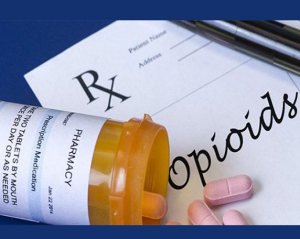New Opioid Prescribing Laws
June 28, 2018
Schoolcraft Memorial Hospital is prepared for the new legislation changes taking effect on June 1st, 2018 in Michigan. State and federal government are acting to reduce improper prescribing of prescription drugs. The changes include:
A patient’s history of prescriptions must be checked in the Michigan Automated Prescription System (MAPS) before providing any controlled substances to the patient. Physicians will be able to see the medications a patient has received from other locations or states. This practice has been in effect for months as part of Schoolcraft Memorial Hospital’s policy for Controlled Substances. The Michigan Automated Prescription System (MAPS) is a software tool that provides prescribers and dispensers with real-time prescription data and analytics of controlled substances and schedule 2-5 drugs that have been dispensed. MAPS assists clinicians make informed decisions and provides resources to better assess a patient’s risk for substance use disorder. MAPS is Michigan’s prescription drug monitoring program (PDMP) and is administered by the Dept. of Licensing and Regulatory Affairs.
PA 246 of 2017 requires prescribers to provide Opioid Education using the “Start Talking Form” when prescribing an Opioid drug. Parents/Guardians of minors will be more educated regarding opioid risks/effects at time of prescription. *Parents/Guardians must sign a consent form that outlines these risks.* All adults receiving opioid prescriptions are required to sign this form. It does not have to be used when prescribing any other controlled substance that does not contain an Opioid. This form must be completed and saved to the patient’s medical record only when prescribing an Opioid drug. Patients with an Opioid prescription refill will be required to come in person to retrieve their written script at the Rural Health Clinic and sign the form after it has been discussed with a licensed professional. Patients who are prescribed an Opioid drug during a scheduled office visit will have to sign this form for each new prescription. The form can be viewed here.
Patients who experience an overdose must receive information on substance use disorder services. Treatment resources are now available in the Rural Health Clinic and the Emergency Department.
On July 1st, opioid prescriptions for acute pain (pain that usually lasts for a limited amount of time) cannot be prescribed for more than a 7 day period.
To learn more click on the link below or download resources at https://michigan-open.org/patient-resources/.

 906-341-3200
906-341-3200 



















